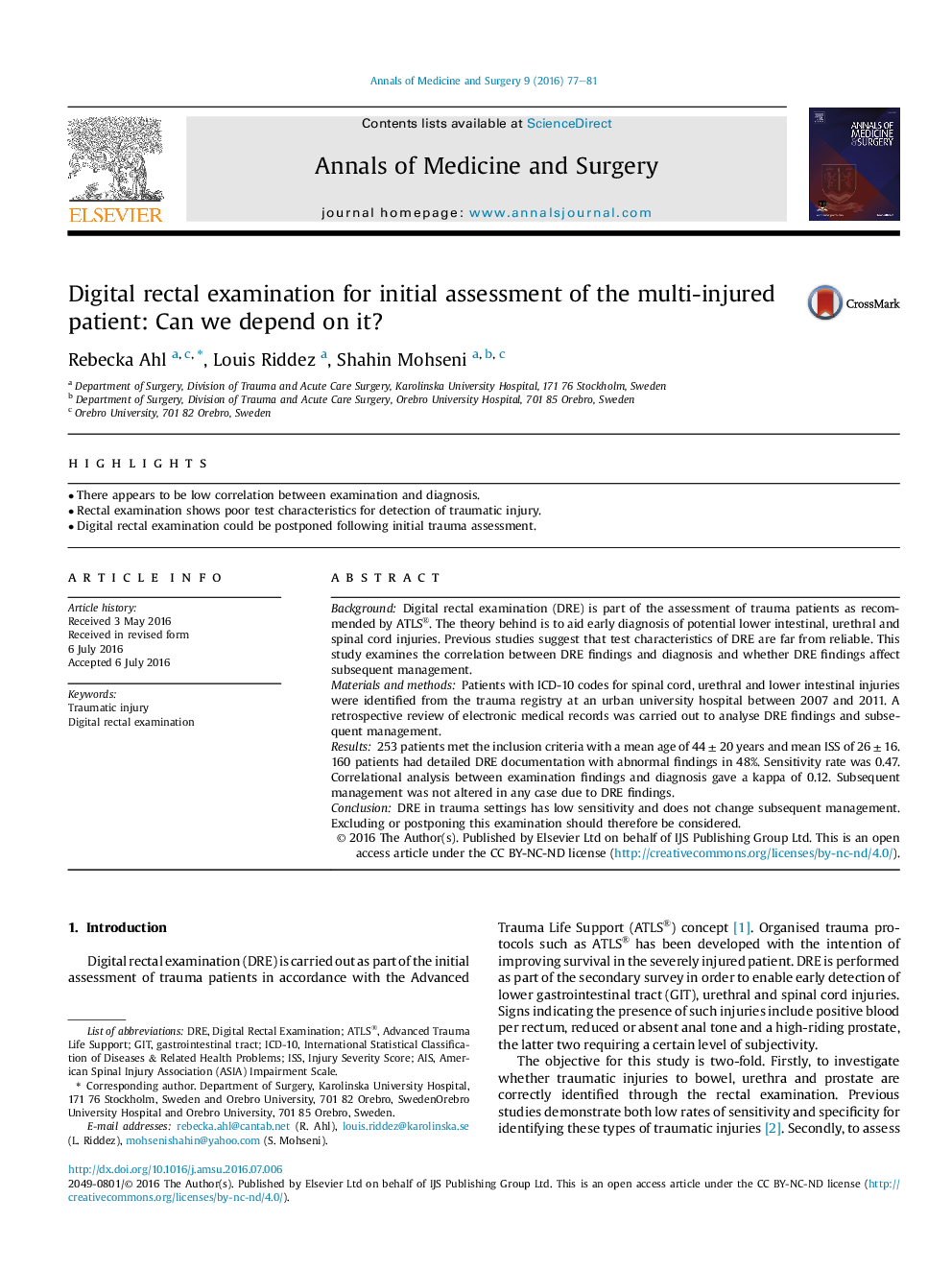| Article ID | Journal | Published Year | Pages | File Type |
|---|---|---|---|---|
| 4195148 | Annals of Medicine and Surgery | 2016 | 5 Pages |
•There appears to be low correlation between examination and diagnosis.•Rectal examination shows poor test characteristics for detection of traumatic injury.•Digital rectal examination could be postponed following initial trauma assessment.
BackgroundDigital rectal examination (DRE) is part of the assessment of trauma patients as recommended by ATLS®. The theory behind is to aid early diagnosis of potential lower intestinal, urethral and spinal cord injuries. Previous studies suggest that test characteristics of DRE are far from reliable. This study examines the correlation between DRE findings and diagnosis and whether DRE findings affect subsequent management.Materials and methodsPatients with ICD-10 codes for spinal cord, urethral and lower intestinal injuries were identified from the trauma registry at an urban university hospital between 2007 and 2011. A retrospective review of electronic medical records was carried out to analyse DRE findings and subsequent management.Results253 patients met the inclusion criteria with a mean age of 44 ± 20 years and mean ISS of 26 ± 16. 160 patients had detailed DRE documentation with abnormal findings in 48%. Sensitivity rate was 0.47. Correlational analysis between examination findings and diagnosis gave a kappa of 0.12. Subsequent management was not altered in any case due to DRE findings.ConclusionDRE in trauma settings has low sensitivity and does not change subsequent management. Excluding or postponing this examination should therefore be considered.
